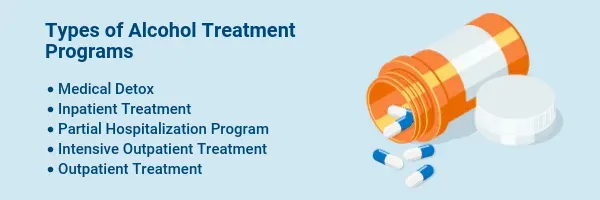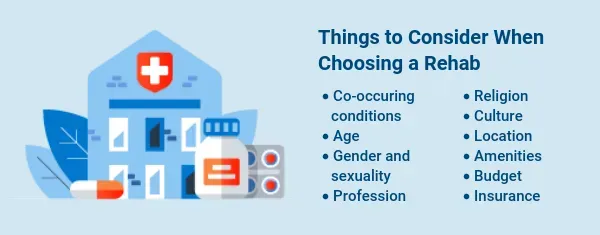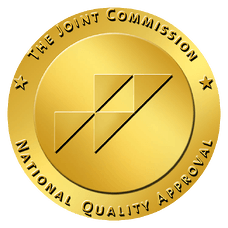Alcohol Rehab
Considering rehab? Choosing the right alcoholism treatment center can be frustrating. Learn about treatment options for alcohol addiction and abuse.
Are you in need of alcoholism treatment for yourself or a loved one who is grappling with alcoholism? Have you identified a spouse, child, relative, or friend who you believe may be struggling with alcohol abuse? Alcohol rehabilitation can offer assistance to individuals who are prepared to confront their substance use disorder.
Alcohol rehabilitation is frequently the primary resource for those battling addiction. There are numerous rehabilitation facilities throughout the country that provide tailored programs to address alcoholism, regardless of the duration of the condition. Alcohol treatment programs consider various factors, including the individual's age, gender, severity, and duration of the addiction. Additionally, many alcohol rehab centers offer a range of aftercare options and guidance to help individuals sustain their sobriety.
It is crucial to familiarize yourself with alcoholism treatment centers, payment options, disparities between inpatient and outpatient programs, how to locate an alcohol treatment center, and the initial steps towards attaining sobriety and recovery. If you are browsing for information to assist a friend or family member, you will also find resources on how to support a loved one, as well as intervention strategies.
Complete the pre-screen form below to initiate the admission process. Our admissions team will contact you shortly.
Article at a Glance:
- Alcohol rehabilitation centers provide personalized treatment programs for alcoholism, tailored to factors like age, gender, and the severity and duration of addiction.
- Options for treating alcohol addiction encompass medical detox, inpatient and outpatient care, partial hospitalization, and teletherapy.
- Certain medications like Acamprosate, Naltrexone, and Disulfiram may be prescribed to mitigate alcohol cravings, alleviate withdrawal symptoms, or induce adverse effects when alcohol is consumed.
- Inpatient care involves residing full-time at the facility for a period ranging from days to over a year, depending on individual needs and progress in recovery.
- Outpatient care offers greater flexibility, allowing individuals to remain at home while engaging in recovery services.
- Intensive outpatient treatment (IOP) typically involves multiple therapy sessions per week.
- Partial hospitalization is a rigorous therapy approach where patients reside in transitional housing or at home, attending therapy and medical appointments during the day.
- Medical detox is often the initial stage in treating alcoholism, eliminating alcohol and toxins under medical supervision.
- Various treatment methods exist, including traditional evidence-based programs, holistic recovery approaches focusing on holistic healing, and integrated programs for individuals with dual mental health and substance use disorders.
- Insurance coverage for alcohol treatment varies by individual circumstances.
- Recognizing signs of alcoholism in a loved one can be vital in guiding them towards necessary help and support.

Alcoholism Treatment Options & Medications
While exploring the various treatment options for alcoholism, you'll come across numerous levels of care to consider. Seek guidance from a doctor, substance abuse therapist, or counselor to determine the most suitable treatment approach for you and your loved one.
Inpatient & Outpatient Alcohol Rehab
When selecting a treatment program, deciding between inpatient and outpatient options holds significant weight. The choice ultimately hinges on your availability and financial circumstances. Can you afford to press pause on every aspect of your life for inpatient care? If maintaining your job and other commitments is crucial, outpatient alcohol treatment and drug rehab may be the most suitable route for you.
Inpatient or residential treatment and alcohol rehabilitation offers the highest level of care, marked by continuous monitoring and clinical oversight to manage alcohol withdrawal symptoms and establish a structured environment. Following detox, the patient resides at the facility full-time, engaging in therapy, group counseling, medication management, holistic treatments, and additional services.
The duration of alcohol rehab varies, ranging from a few days to over a year, contingent on the individual's needs and progress in recovery. Common durations for alcohol rehab programs include:
- 30-day alcohol rehab programs
- 60-day alcohol rehab programs
- 90-day alcohol rehab programs
- Long-term alcohol rehab programs (120 days or more)
Outpatient alcohol treatment, offering the most adaptable care level, delivers recovery services at a day center, clinic, rehab facility, or another designated location while the patient continues to reside at home. Outpatient clients can engage in counseling, therapy, 12-step programs, and other recovery services without relinquishing their autonomy. This care level is recommended for individuals who have completed an inpatient alcohol program or for medically stable individuals with a strong desire to attain sobriety.
Intensive outpatient treatment, also known as IOP, provides therapy on several days per week and is less intense compared to partial programs.
Partial Hospitalization
Following the successful completion of a residential alcohol rehabilitation program, individuals who have achieved stability in their sobriety may transition to a partial hospitalization program. This intensive therapeutic approach entails patients residing in transitional housing or at their own homes, participating in classes, counseling sessions, and medical appointments throughout the day. On average, a partial hospitalization alcohol rehabilitation program typically spans about 2 weeks.
Medical Detox
As a fundamental component of your alcoholism treatment plan, you will undergo an alcohol detox regimen. This crucial phase involves the thorough removal of alcohol and other harmful substances from your body in a supervised medical setting that effectively manages the risks and symptoms of withdrawal that come with detoxification. The dedicated facility team will support and guide you through the detox process, ensuring your body is free from alcohol and toxins, thus initiating your recovery journey in the best possible manner. Under the care of healthcare experts, detoxifying within a professional treatment facility provides the securest method for removing alcohol from your system.
Teletherapy
If commuting to the center or juggling your daily routine poses a challenge, engaging in online teletherapy can initiate your substance abuse treatment from the comfort of your home. Teletherapy sessions provide adaptable scheduling and convenience, ensuring the protection of your confidentiality. While face-to-face sessions may be more suitable for certain individuals, teletherapy plays a crucial role in extending treatment accessibility to those seeking recovery. Unfortunately Wabash Recovery does not offer this option.
Additional Options
- There are various approaches to recovery. To determine the most suitable one for you, take into account your values, mental health status, personality, and cultural background. Our knowledgeable representatives are available to assist you in answering your questions and choosing the best path for your healing journey. Some of the available approaches are as follows:
- Traditional alcoholism treatment programs utilize evidence-based techniques such as psychotherapy, behavioral modification therapy, peer group counseling, nutritional counseling, and 12-step programs. The rehabilitation process commences with detoxification, ensuring a safe and comfortable withdrawal for the patient. Following detox, the patient engages in a structured series of therapies aimed at helping them change potentially harmful behaviors and establish a sober lifestyle.
- Holistic recovery programs go beyond treating alcoholism solely as a physical or psychological condition, focusing on healing the body, mind, and spirit. Along with standard components of alcohol rehab—individual and group therapy, family counseling, 12-step meetings, and behavioral modification—treatment addresses the patient’s spiritual and emotional needs through activities like art therapy, recreational therapy, guided meditation, yoga, acupuncture, and massage. Holistic therapy aims to facilitate healing on all levels, enabling the patient to construct a meaningful, fulfilling life.
- Integrated alcohol treatment programs cater to individuals meeting the criteria for both a substance use disorder and a mental health condition. As per the 2018 National Survey on Drug Use and Health, 9.2 million people were affected by both a mental illness and substance use disorder; 31.3% of those with a mental illness had engaged in binge drinking alcohol within the past month. These individuals encounter unique challenges in recovery, such as low motivation, anxiety in new situations, difficulty concentrating, and delusional thoughts. Integrated treatment, addressing both the patient’s mental health condition and substance use disorder within the same program, is an effective means of achieving complete recovery. Services for both issues are offered at a single facility by staff with expertise in substance abuse treatment and mental health.
Alcohol Rehab Treatment Medications
In alcohol rehab treatment programs, certain medications are employed to aid in the recovery process. These prescription drugs work by mitigating alcohol cravings, alleviating withdrawal symptoms, or inducing adverse reactions upon alcohol consumption. The medications used are as follows:
- Acamprosate – May help diminish alcohol cravings and withdrawal symptoms
- Naltrexone – May lessen the yearning for alcohol
- Disulfiram – May elicit unpleasant effects like headaches, nausea, or vomiting upon alcohol ingestion.

How to Make an Informed Decision on Alcohol Rehab Treatment
In the past, alcohol rehabilitation programs offered a one-size-fits-all approach to treatment, overlooking individual differences such as age, gender, mental health history, and other factors. Today, alcohol treatment facilities have evolved to cater to the needs of a diverse and varied clientele. Selecting a treatment plan now involves a more nuanced decision-making process, but conducting a thorough evaluation is likely to result in greater success and satisfaction for the individual.
Choosing the Right Path
Once the appropriate level of care and therapy approach have been chosen, it is essential to delve into the specifics of the treatment. Take into account the individual’s unique situation and their family dynamics, considering various factors such as age, gender, mental health history, and other demographic elements.
Additional Factors to Consider:
- Varieties of Addiction: It is crucial that the program addresses not only your alcohol dependency but also any secondary substances you may be using. Treatment should encompass co-occurring conditions such as depression, personality disorders, anxiety disorders, or eating disorders.
- Age: Children and adolescents have distinct needs and challenges compared to adults due to the unique developmental stage of the adolescent brain. Younger individuals may respond better to tailored treatment approaches.
- Gender and Sexuality: Gender-specific programs provide an environment free from societal pressures, allowing participants to focus on recovery without distractions. These programs address issues related to gender or sexual orientation like social pressures, prejudice, or violence.
- Profession and Social Standing: Interacting with diverse demographic groups in treatment can offer a leveling experience, emphasizing that alcoholism is a universal disease. Finding comfort and effective self-expression among peers can be particularly beneficial. Specialized programs may address the unique stressors faced by career professionals.
- Religion, Culture, and Values: It is essential to choose a program that aligns with your religious beliefs and personal values for effective treatment. Programs that conflict with your spirituality or cultural background are likely to be less successful in supporting your recovery journey.
- Location and Facilities: When exploring alcohol treatment programs, the facility's location is a key consideration. Assess whether staying close to home and work or distancing yourself from daily stressors would enhance your recovery. Consider whether you prioritize luxury amenities or feel more comfortable with modest yet comfortable accommodations.
- Financial Aspects: While the cost of an alcohol rehab program shouldn't be the primary concern, it is a significant factor for many patients. The chosen treatment plan should be in line with your financial resources, budget, and insurance coverage.
Supporting a loved one who is battling alcoholism can be a tough journey.
It is often painful to come to terms with the reality of their struggles. Initially, it may be tempting to ignore the signs of the issue. However, as challenges in personal, financial, or legal aspects grow, it becomes essential to acknowledge the possibility of a substance use disorder in your loved one. Understanding the warning signs of alcoholism not only has the potential to salvage your relationship but can also avert a potential tragedy.
If you suspect that your loved one needs help in their journey towards sobriety:
It is crucial to guide them towards seeking professional evaluation from a physician or therapist. Discuss the issue of alcohol abuse with them openly and reassure them of your unwavering support for seeking additional help, such as therapy, counseling, or enrolling in a 12-step program. Moreover, reaching out to a free alcohol hotline can provide valuable information and guidance.
Even if your loved one may seem to be managing their daily responsibilities at work, school, or home, there is a looming risk that the situation can escalate to more severe consequences, including health issues, legal complications, or accidents, if left unaddressed. If you have not already broached the subject with your loved one, now is the time to initiate that crucial conversation. Seek advice from a substance abuse counselor or family therapist on strategies to assist your loved one in accessing a residential alcohol rehabilitation center or an intensive outpatient program.



